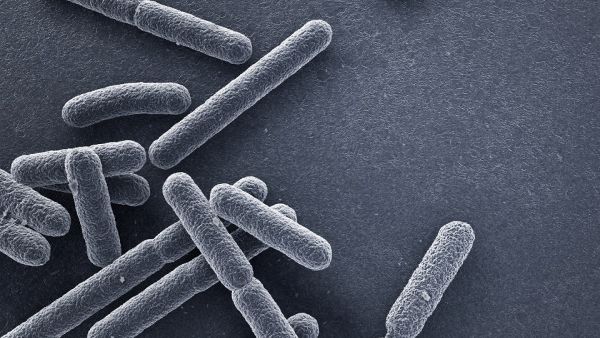WCM-Q Researchers Help Reprogram Bacteria Cells to Deliver Anti-Cancer Drugs

Researchers at Weill Cornell Medicine-Qatar (WCM-Q) have taken part in a landmark international study in which bacteria cells were reprogrammed to synthesize and deliver a potent anti-cancer drug.
The WCM-Q researchers worked with scientists at the University of Oxford and the University of Sheffield in the UK and the University of Greifswald in Germany to help construct reprogrammable cells from three species of bacteria, Escherichia coli, Pseudomonas putida, and Ralstonia eutropha.
The researchers achieved this by destroying and removing the genetic material from the bacteria cells using a special type of enzyme which causes breaks in both strands of the DNA double helix carried within the chromosomes but leaves the other cellular structures intact and able to function. The resultant ‘SimCells’ (short for simple cells) can be reprogrammed by inserting other genetic material, allowing them to be used for a variety of functions, including the synthesis and delivery of therapeutic drugs. Engineering existing organisms to perform researcher-designed functions in this way is known as synthetic biology and is an extremely promising area of research for the development of new treatments for a wide variety different diseases.
In the study, titled ‘Chromosome-free bacterial cells are safe and programmable platforms for synthetic biology’, the research team used reprogrammed SimCells to synthesize catechol (a potent anticancer drug) from salicylic acid to inhibit lung, brain, and soft-tissue cancer cells in the lab. They also demonstrated that SimCells can be used as a ‘safe agent’ to manufacture and deliver therapeutic drugs because they cannot replicate and do not interfere with the host genome as they do not have chromosomal DNA.
Dr. Frank Schmidt, director of the Proteomics Core at WCM-Q, is one of the authors of the paper, which has been published in the Proceedings of the National Academy of Sciences of the United States of America (PNAS), a high-profile journal.
Dr. Schmidt said that the project had been led by researchers at the Department of Engineering Science at the University of Oxford, particularly Professor Wei E. Huang, associate professor of synthetic biology, and Catherine Fan, graduate researcher, while WCM-Q contributed its advanced capabilities in protein analysis.
Dr. Schmidt said: “This is a really exciting study because it not only demonstrated that bacteria cells can be manipulated to serve as platforms for delivering drugs that are potentially life-saving, but also that they cannot reproduce themselves and cause dangerous infections or interfere with the DNA of the patient.
“It is wonderful for us at WCM-Q to be able to take part in cutting-edge research projects like this with elite institutions like Oxford, Sheffield and Greifswald and it shows the level of ambition and capability we have here, both at the college and in Qatar in general.”
The paper states that it is known that several species of bacteria preferentially associate with cancer tumors, meaning there is great potential to engineer bacteria to sense, target and deliver anticancer compounds directly to tumors with a patient’s body. Additionally, the paper asserts that ‘genetic circuits’ (artificial assemblies of genes created in the lab) had been inserted into the SimCells and were found to be able to utilize the cellular machinery therein to synthesize proteins and carry out important metabolic functions such as the glycolysis pathway, which is essential for cell survival. Some of the SimCells generated by the researchers were able to survive for as long as 10 days.
WCM-Q’s contribution to the study was supported by the Biomedical Research Program at WCM-Q, a program funded by Qatar Foundation. The paper can be read in full at https://www.pnas.org/content/
Background Information
Weill Cornell Medical College in Qatar
Weill Cornell Medicine - Qatar is a partnership between Cornell University and Qatar Foundation. It offers a comprehensive six-year medical program leading to the Cornell University M.D. degree with teaching by Cornell and Weill Cornell faculty and by physicians at Hamad Medical Corporation (HMC), Aspetar Orthopedic and Sports Medicine Hospital, the Primary Health Care Corporation, the Feto Maternal Center, and Sidra Medicine, who hold Weill Cornell appointments. Through its biomedical research program, WCM-Q is building a sustainable research community in Qatar while advancing basic science and clinical research. Through its medical college, WCM-Q seeks to provide the finest education possible for medical students, to improve health care both now and for future generations, and to provide high quality health care to the Qatari population.






